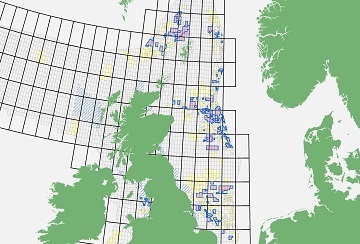Business confidence in the UK Continental Shelf (UKCS) is at a near record low, falling from +36 points last April to -37 today.
That’s according to the long-running biannual Energy Transition 37 survey produced by Aberdeen & Grampian Chamber of Commerce with KPMG and ETZ Ltd.
“At the same time, confidence in overseas work remains high, and operators surveyed confirmed that discretionary capital is now being diverted away from the UK,” said the chamber.
“As a result, the world class energy supply chain businesses with bases in the North-east of Scotland are finding export markets for their skills and technologies in other parts of the world.
“This only reinforces that other nations and basins are offering more favourable business conditions than the UK.
“And this risks some of our best people, and even companies, being lured away from working in the North Sea, possibly never to return.”
The report argues that Government “needs to urgently create the conditions which will encourage investment in the energy sector or risk Aberdeen losing its global energy capital status.”
The report said a lack of pace behind new energy projects, high taxes and the “hostile environment” for oil and gas have been highlighted as key concerns in Energy Transition 37.
It said sharp declines in oil and gas exploration and production are forecast, despite the UK becoming increasingly reliant on imported energy, and the security of supply issues which have arisen following Russia’s invasion of Ukraine.
The report said government policy, including taxation, has emerged as the biggest factor impacting future activity levels, and almost two third of those surveyed believe that none of the UK’s political parties is delivering the best policies for delivering both energy transition and security.
And despite the Scottish Government’s energy strategy containing a number of measures which are supportive of energy transition, just 7% believe the SNP has the best policies to deliver the transition, reflecting that “the strategy’s presumption against oil and gas” has overshadowed its offshore wind and hydrogen ambitions.
Aberdeen & Grampian Chamber of Commerce CEO Russell Borthwick said: “This biannual barometer of industry confidence has been informing policy in the energy sector for almost 20 years, and never has it been more crucial that we get these decisions right.
“It is pleasing to see that the energy transition is well and truly in action, with respondents projecting that 45% of their operations will be in new energy activities by 2030.
“The most popular areas of growth being in decommissioning, offshore & onshore wind, CCUS, hydrogen production/transportation and geothermal.
“However, as has been warned for over a year now, we are risk of accelerating the decline of our oil and gas sector at a pace which jeopardises the skills and investment required to deliver the UK’s net zero plans.
“Government and industry share the same green aspirations, but there is a clear disconnect between policy makers and those who will fund and deliver our low carbon future, particularly over the role of oil and gas. This needs to be addressed as a matter of urgency.”
Robert Aitken – Director, KPMG UK in Aberdeen, said: “The latest survey shows that the north east’s energy industry is evolving and is working towards a future where greener activities start to outweigh more carbon intensive ones, but clearly more support is needed from all corners to maintain focus on the long-term objective of net-zero.
“Keeping both plates spinning in unison is critical to delivering energy security and creating the revenues and high-quality jobs that are desperately needed to grow our economy and to maintain the north east’s position as a global energy hub.
“How we reach a fully net-zero industry is still up for debate, and depends on a variety of factors, including demand patterns and how businesses are properly encouraged, equipped and incentivised to invest in greener activities and solutions.
“What is clear is that businesses need to think about the future because change is coming. Having a well thought out ESG strategy is an imperative and acts as a license to operate in today’s environment.”
Maggie McGinlay, Chief Executive, ETZ Ltd, said: “This survey lays bare the scale of the challenge before us to reposition this region as the Net Zero Energy Capital of Europe.
“It has demonstrated what many have suspected in recent months – that sector confidence in UKCS was on a downward trajectory. In fact, the decline in the past year is to a level only outstripped by the financial crisis of 2008, the oil crisis and the aftermath of Covid.
“With the majority of businesses pointing to the Energy Profits Levy (EPL) as having had the most negative impact on business, there is also a loud message that there continues to be a need for policymakers in both Scottish and UK Governments to provide a clearer vision going forward so that the sector can regain that vital confidence in order to deliver the transition which will benefit everyone.
“Many of the issues explored by this survey – investment in strategic infrastructure, technology innovation, supply chain development and skills – sit at the centre of ETZ’s vision, which is why we continue to work closely across industry, government and stakeholders in taking advantage of every opportunity where progress can be made.”
